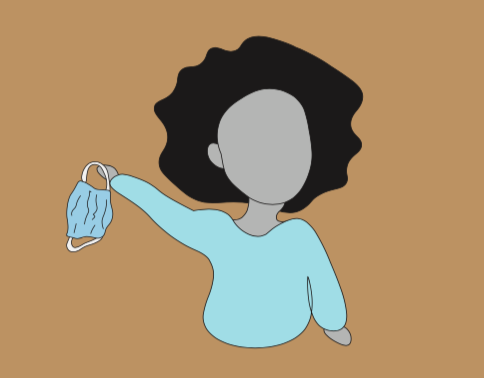For many, COVID-19 seems a distant memory. As pandemic-era safety measures are done away with and life begins to feel more and more like it did before, people are becoming increasingly comfortable and forgetting the actual dangers of the virus.
COVID-19 is not gone, and it is still affecting people every day. It is important that, as a community, we recognize the mitigating behaviors that we must continue to prevent the virus from being as deadly as it once was.
The semester is kicking into full gear and so is the rise in COVID-19 cases. According to data gathered from Wisconsin’s Wastewater Monitoring Program, Milwaukee County is currently seeing high COVID-19 activity compared to the past six months.
Marquette has already started to feel its first wave of the virus on campus, and emergency isolation housing is filling up fast.
Two weeks ago, I tested positive and was lucky enough to go home to stay with my parents. One of my friends on the other hand, was not so lucky. She did not have the ability to go home, so she stayed in isolation housing at the Campus Town East apartments. Marquette University Police Department came to transport her and her luggage from Straz Tower, but that was the extent of support she received from the university.
During the five days she was isolated before testing negative again, she was required to get grab-and-go food options from dining halls. This completely defeats the purpose of her isolation, because if a person with COVID-19 enters a dining hall, even if they wear a mask, they are still putting everyone eating there at risk.
There needs to be some options to deliver food to students if we are expected to isolate. Marquette should not expect its students to have to rely on receiving meals from friends or expensive food delivery apps.
The greatest responsibility to prevent the spread of COVID-19 does not fall on the university though. It falls on each of us. The CDC has updated its guidance in a way that should be manageable in a post-pandemic society. The problem is that no one wants to follow it.
Too often, I hear my friends and peers complain that they do not want to test when they feel sick, even though testing is our single most powerful tool against the spread of the virus.
I have legitimately heard the claim, “If I never test, I’ll never know if I have COVID and I won’t have to isolate.” As much as I want to blame this thought process on laziness or selfishness, it actually comes from a place of ignorance.
People have forgotten the dangers of COVID-19, and what made it a pandemic in the first place. Compared to the flu, COVID-19 is more contagious, spreads quicker and has a higher chance of severe illness. According to the World Health Organization, there have been more than 100 million confirmed cases in the U.S., and more than 1 million people have died.
On top of that, unlike other common viruses, lasting complications, referred to as Long COVID, can occur. Experts at John Hopkins Medicine list persistent cognitive problems, shortness of breath, fatigue and long-term heart conditions as potential complications from contracting the virus.
No one is asking us to return to pandemic-era quarantines and widespread mask mandates, as at this stage of the virus that just is not necessary. It is important, though, that we monitor our health and test as soon as we feel symptoms. Upon a positive test, isolate at home for the full five days or take advantage of Marquette’s emergency housing.
With over three years of experience living with this virus, we have plenty of measures in place to mitigate the spread of COVID-19. It is now in our hands to be knowledgeable and empathetic enough to do our part in keeping the community safe.
This story was written by Joseph Schamber. He can be reached at joseph.schamber@marquette.edu.







